
OR
DoTM revamps Transport Management Directive to enhance public vehicle standards
Published On: June 6, 2023 07:30 AM NPT By: Sara Pahari
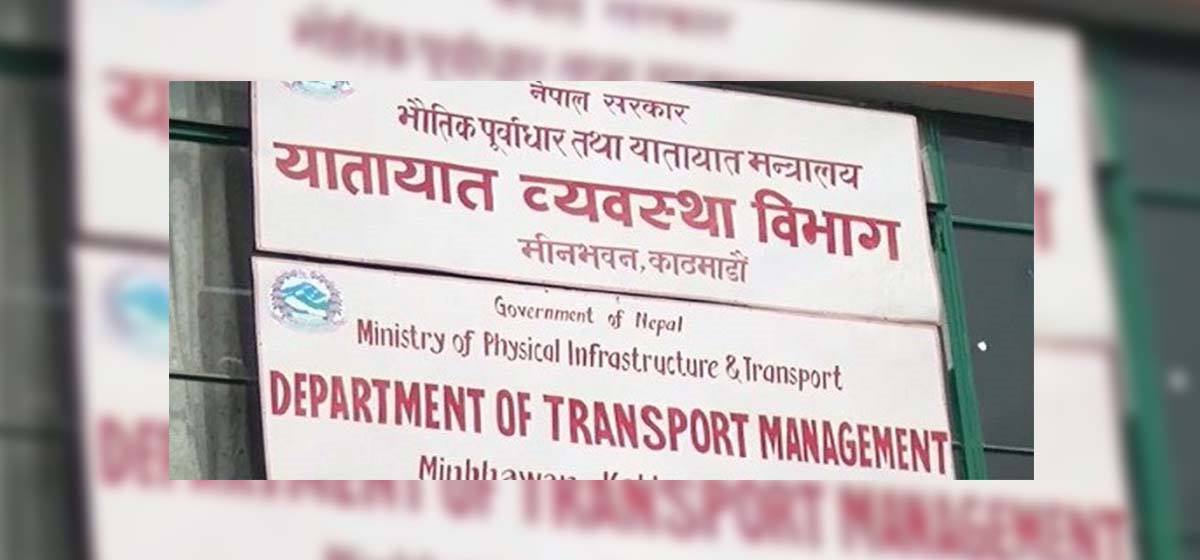
KATHMANDU, June 5: In a bid to enhance the quality of public transportation services, the Department of Transport Management has recently introduced a set of comprehensive rules for medium and long-distance public vehicles in Nepal. These new regulations, which encompass vehicle management, cleanliness standards, adherence to health protocols, and driver behavior, aim to address long-standing issues and elevate the overall passenger experience.
Under the revised Transport Management Directive, public vehicle operators are now required to ensure regular cleaning of their vehicles, including seat covers, floors, glasses, curtains, and ceilings. Smoking inside public vehicles has been strictly prohibited, and loud music is banned to prevent noise pollution.
Furthermore, the department has urged public vehicles to display informative posts promoting public health, and they must stop only at locations with clean eating areas and toilets. Additionally, operators are mandated to conduct health checkups for drivers and helpers every three months, ensuring the well-being of the transport staff.
In a significant move towards transparency and public safety, public vehicles are now obliged to broadcast audio messages before departure and after arrival. These messages inform passengers about essential guidelines such as not littering, avoiding reserved seats, not disembarking until the vehicle stops completely, and reporting any minor injuries during the journey.
In another development, the Department of Transport Management (DTM) has recently amended the Transport Management Directive to enforce fines on public transport and helpers who fail to meet cleanliness standards. This amendment adds an extra layer of accountability, compelling operators and staff to prioritize cleanliness and maintain high hygiene standards.
The Transport and Vehicles Act-2049 BS, along with the Transport Management Directive, 2060 BS, which underwent revision in 2074 BS, has played a significant role in shaping vehicle registration regulations in Nepal. Previously, the complete customs declaration form and receipt of customs duty were mandatory requirements for vehicle registration.
However, the recent amendment to the work procedure has opened up new possibilities, enabling the registration of motorcycles manufactured by Yatri. Now, these vehicles can be registered based on the submission of the Value Added Tax (VAT) Bill and Excise Clearance Form, simplifying the registration process for locally manufactured motorcycles and streamlining the overall vehicle registration system. This amendment showcases the government's efforts to promote production of domestic vehicles and encourages sustainable transportation options within the country.
These regulatory changes come in the wake of concerns regarding the condition of public transport vehicles in Kathmandu. Previous reports have highlighted critical issues within the public transport sector, emphasizing the urgent need for improvements to benefit both passengers and the transport industry. While the newly implemented rules mark a positive step forward, some experts have criticized Nepal's overall ambition in reducing carbon emissions and developing electrified railways. The government's 15th plan falls short of the target set for constructing railway infrastructure, raising doubts about the achievement of goals within the specified timeline. Inadequate plans and insufficient investment in policies and targets further hamper the progress towards a sustainable transportation system.
The Urban Area Public Transport (Management) Authority Act, 2022, was enacted with the aim of establishing a dedicated Public Transport Authority in urban areas. This legislation was designed to streamline and enhance the efficiency of public transportation services within urban areas, making them more accessible, user-friendly, reliable, cost-effective, and safe for the general public.
The primary objective of this Act was to ensure the effective implementation of public transport policies by promoting the development and expansion of an integrated transport system. By establishing a centralized authority, the Act claimed to seek to coordinate and regulate various aspects of urban public transport, including route planning, fare management, vehicle standards, and overall service quality.
But, the lack of a clear government policy for promoting public transport remains a significant challenge. The absence of an active body responsible for implementing the Urban Area Public Transport (Management) Authority Act, 2022 raises concerns about the prioritization and development of public transportation in the country. As 97 percent of the population relies on public transport, the need for well-defined policies, proper infrastructure, and increased investment becomes paramount.
Additionally, Nepal's commitment to achieving net zero emissions by 2045 and immediate electrification of the economy must be supported by comprehensive plans and consistent policies. The delay in passing the implementation plan and the absence of a stable policy framework comparable to India's successful electric mobility action plan hinder the expansion of the electric vehicle market in Nepal. To address air pollution and health risks associated with diesel buses, prioritizing the electrification of public transport is crucial.
In light of past successes such as trolleybuses and ‘safa’ tempos, the government possesses the necessary capacity to operate electric buses effectively. However, a lack of initiative and stability in policies obstructs the realization of this potential. The development of electric public transport should be prioritized, catering to the needs of the majority who rely on public transportation and contributing to sustainable and eco-friendly mobility solutions.
The recent revision of vehicle registration procedures is also noteworthy. Vehicles produced or assembled in Nepal no longer require customs declarations for new registration, transfer registration, alteration registration, auction registration, re-registration, and name change. Instead, as per the revised guidelines, the assembler or manufacturing company must submit the value-added tax invoice and the duty clearance form for vehicles subject to excise duty provisions.
These series of reforms and amendments introduced by DTM signify a crucial step towards transforming the transport sector in Nepal. By focusing on cleanliness, passenger safety, and environmental sustainability, the government aims to provide a superior travel experience and lay the foundation for a modern, efficient, and responsible transport system.
You May Like This
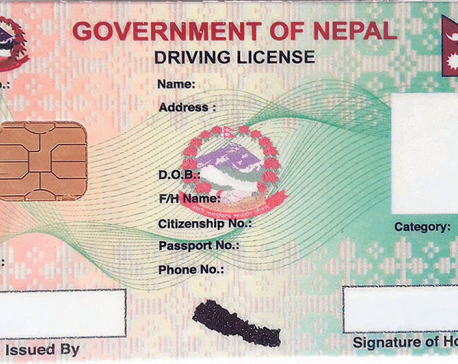
5,000 applications for driving license to be processed daily
KATHMANDU, Oct 27: The Department of Transport Management (DoTM) has said that it will process as many as 5,000 applications... Read More...
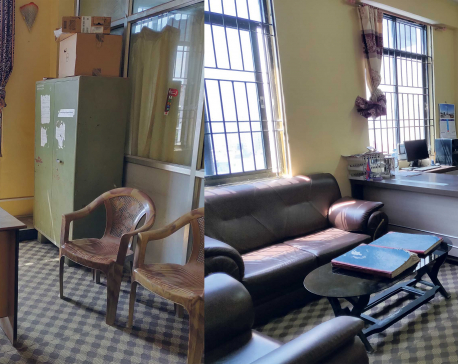
Transport management office in disarray; service seekers infuriated
KATHMANDU, March 23: One any given day, the office of transport management at Ekantakuna, under the Department of Transport Management... Read More...
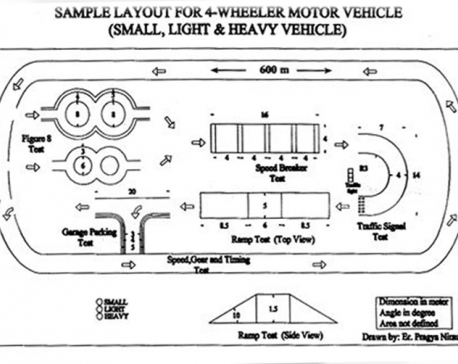
DoTM changes trial layout for driving license test
KATHMANDU, Jan 5: The Department of Transport Management, Ekantakuna, Bagmati, has changed its layout for the practical test for driving... Read More...

Just In
- Sajha Yatayat cancels CEO appointment process for lack of candidates
- Govt padlocks Nepal Scouts’ property illegally occupied by NC lawmaker Deepak Khadka
- FWEAN meets with President Paudel to solicit support for women entrepreneurship
- Koshi provincial assembly passes resolution motion calling for special session by majority votes
- Court extends detention of Dipesh Pun after his failure to submit bail amount
- G Motors unveils Skywell Premium Luxury EV SUV with 620 km range
- Speaker Ghimire administers oath of office and Secrecy to JSP lawmaker Khan
- In Pictures: Families of Nepalis in Russian Army begin hunger strike















_20240419161455.jpg)
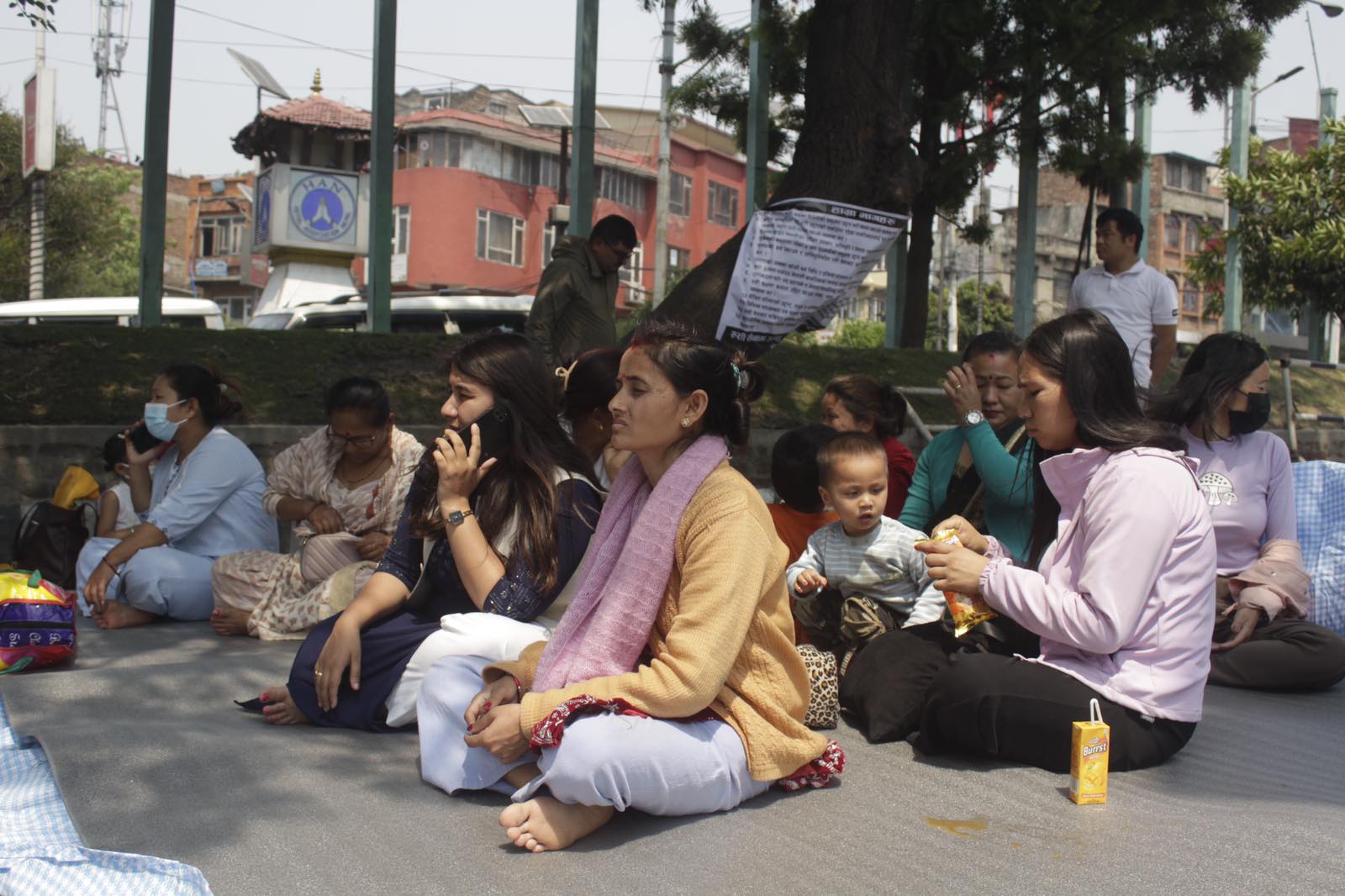
Leave A Comment